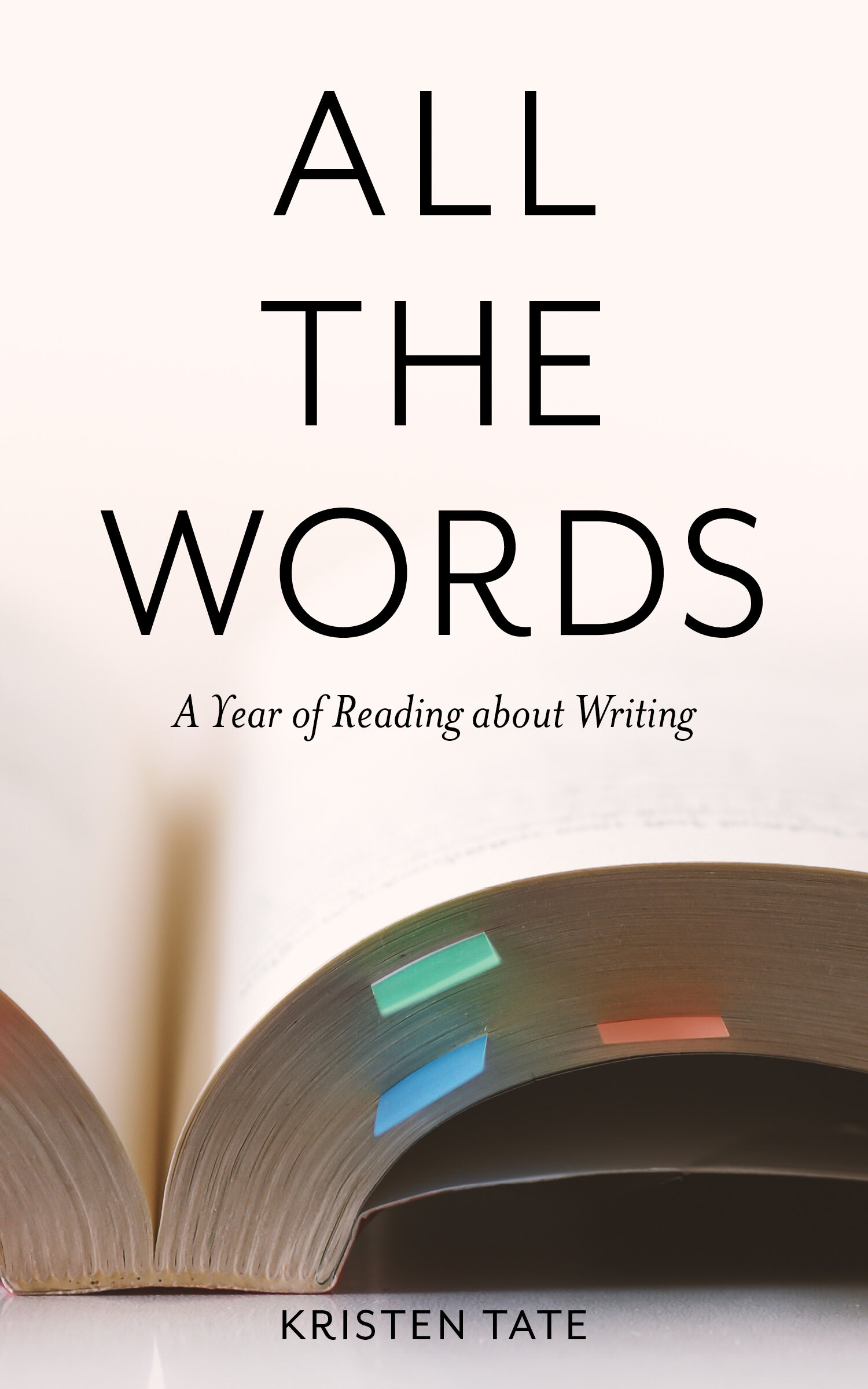Bird by Bird, by Anne Lamott
This is part of a series of weekly reviews of writing craft books written in 2019, later revised and collected in Kristen’s book All the Words: A Year of Reading About Writing. Read the first chapter or buy the book in our Shop.
It’s week two of 2019. Have you settled back into work, creative and otherwise, after those long drifty days at the end of the year?
If you are feeling stuck, empty, or maybe even angry at your late-2018 self for making all of those stupid shiny resolutions for 2019, then Anne Lamott’s Bird by Bird: Some Instructions on Writing and Life may be just the tonic you need. (Possibly you also need some cranberry shrub.)
One of Lamott’s key messages is that writing is hard: “Writing can be a pretty desperate endeavor, because it is about some of our deepest needs: our need to be visible, to be heard, our need to make sense of our lives, to wake up and grow and belong.”
To do this work, writers often need to confront the extremes of human emotion: “We write to expose the unexposed. If there is one door in the castle you have been told not to go through, you must. Otherwise, you’ll just be rearranging furniture in rooms you’ve already been in. Most human beings are dedicated to keeping that one door shut. But the writer’s job is to see what’s behind it, to see the bleak unspeakable stuff, and to turn the unspeakable into words—not just into any words but if we can, into rhythm and blues.”
If this door-opening business sounds grim, Lamott has much to say about the rewards. Writing, she says, is “spiritually invigorating” and “intellectually quickening” – “a perfect focus for life.” Writing is also an act of generosity. Giving your book to readers is like throwing a party, being the person who orchestrates a night of cranberry shrub cocktails and Bananagrams on a dark winter night for no reason at all. As Lamott says, “It is one of the greatest feelings known to humans, the feeling of being the host. Of hosting people, of being the person to whom they come for food and drink and company. This is what the writer has to offer.”
Bird by Bird can remind you why you wanted to start writing in the first place, and it can also help you make forward progress when you are stalled. One of my favorite insights in the book is about writer’s block: “The word block suggests that you are constipated or stuck, when the truth is that you’re empty.” Instead of staring at a blank page or screen, try filling yourself back up – go out into the world and see a movie or visit a museum or just sit on a park bench and watch what all of the humans around you are up to and then come back to the page with new sensory experiences and insights in your writing well.
Lamott’s best lesson though is that writers need to lower their standards for themselves at the beginning of a project. This can be hard – you are a writer, after all, because you love words and you particularly love the way that words, lined up just so, can produce surprise, suspense, insight, and joy. You need to forget about all of that when you are starting a project. As Lamott says, “For me and most of the other writers I know, writing is not rapturous. In fact, the only way I can get anything written at all is to write really, really shitty first drafts.”
To achieve that shitty first draft, writers must slay the dragon of perfectionism: “So go ahead and make big scrawls and mistakes. Use up lots of paper. Perfectionism is a mean, frozen form of idealism, while messes are the artist’s true friend. What people somehow (inadvertently, I’m sure) forgot to mention when we were children was that we need to make messes in order to find out who we are and why we are here—and, by extension, what we’re supposed to be writing.”
Bird by Bird is a fundamentally positive book, and Lamott is honest and very, very funny. (My favorite one-liner: “Having a baby is like suddenly getting the world’s worst roommate, like having Janis Joplin with a bad hangover and PMS come to stay with you.” Truth.) Lamott writes traditionally published literary fiction and memoirs, and her perspective is very much shaped by those parameters, but I think it’s a book that all writers can benefit from.
I’ll leave you with one more gem you can revisit when the page is blank and the well is dry and those doors seem impossible to open:
“Writing has so much to give, so much to teach, so many surprises. That thing you had to force yourself to do—the actual act of writing—turns out to be the best part. It’s like discovering that while you thought you needed the tea ceremony for the caffeine, what you really needed was the tea ceremony. The act of writing turns out to be its own reward.”
Here’s to really shitty first drafts, y’all,
Kristen
Check out our Resources page for more in-depth articles on writing, revising, polishing, and publishing your novel. Sign up for our weekly newsletter for fresh content, and you’ll also get our free PDF with recommended reading for writers!



